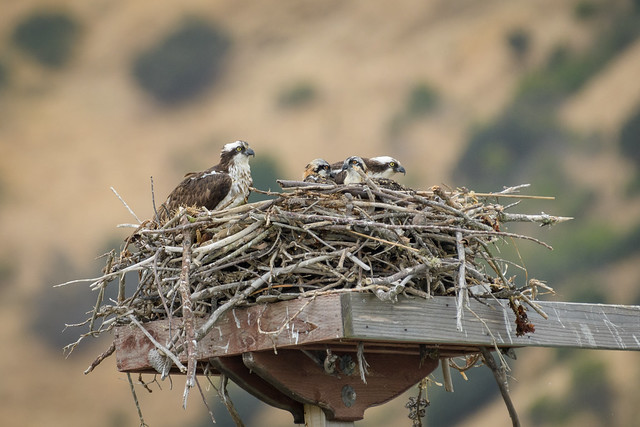By Norman La Force
 Point Molate is one of the last great shoreline open spaces in the Bay Area. The East Bay Regional Park District’s Master plan calls for it to be a regional park. It is rich in wildlife, home to unique habitats and flora, and the offshore eelgrass beds — a pillar of the Bay Estuary ecosystem — are the healthiest and most expansive in San Francisco Bay.
Point Molate is one of the last great shoreline open spaces in the Bay Area. The East Bay Regional Park District’s Master plan calls for it to be a regional park. It is rich in wildlife, home to unique habitats and flora, and the offshore eelgrass beds — a pillar of the Bay Estuary ecosystem — are the healthiest and most expansive in San Francisco Bay.
We’ve reported on this blog that Point Molate is under threat of an illegal sweetheart deal that the city made with the developer and an Indian tribe (after they sued the city for rejecting their proposal for a casino at Point Molate). That deal was made in violation of California’s open government law, the Brown Act, and locks the city into a development of thousands of luxury houses at the site. Citizens for Eastshore Parks, SPRAWLDEF, and four Richmond residents sued the city over this illegal settlement. So far they have won an attempt by the defendants to dismiss the case.
The development proposal is economically a disaster for the city and environmentally a disaster for the Bay Area. Economically, the proposal would cause the city to bleed red ink. Richmond has failed to carry out a fiscal impact analysis on its plan to sell Point Molate to the Southern California-based SunCal real estate corporation — as would be expected if it were exercising reasonable due diligence.
In the absence of a fiscal impact analysis by the city, three citizen groups (Citizens for Eastshore Parks, the Point Molate Alliance, and SPRAWLDEF) commissioned one. The analysis was done by Alexander Quinn, Director of Sustainable Economics at Hatch, the globally respected business and engineering consulting firm. Mr. Quinn found that the proposed sale of Point Molate for a luxury housing tract could end up costing the city $2.4 to $3.5 million a year in city services and other expenses. The city would have to cut services or raise taxes to pay these costs. It would also mean that today’s residents, with average incomes of $55,000, would end up subsidizing thousands of new residents with incomes of over $200,000.
The citizens’ analysis is available to the public. The Sierra Club and the organizations that commissioned the report have given it to members of the city council and have called on the city to hold a study session to review Quinn’s work. We want city officials to publicly discuss any issues or concerns they have with the analysis rather than hide behind internal critiques that the public won't see.
The proposed project is also an environmental disaster. Between 1,100 and 2,200 luxury housing units would be built in a location that has no public transit of any kind, no schools nearby, and right next to the Chevron refinery. This mini luxury town would require a fire station — but even that would probably be insufficient to protect the residents from a fire. There is only one two-lane road in and out of Point Molate, so one would have scenario like we saw in Paradise if a large fire roared through Point Molate. When asked about this safety problem, the city's former Planning Director blithely stated that residents would be able to evacuate by riding ferry boats!
The proposed building site is also far from any Priority Development Area identified as part of a regional plan to focus housing growth around transit hubs, established job centers, shopping districts and other services. The only access in and out of Point Molate would be by private car, adding to carbon emissions and climate change. Moreover, the lack of transit and walkable retail space also means that any low-income or affordable housing at Point Molate would not be viable. Such housing should be built in the downtown areas near public transit.
This development proposal would also threaten the eelgrass beds lying off of Point Molate. These beds are the nursery for the small organisms that Bay fish, shrimp, crabs and other water species feed on. The eelgrass is also an important spawning ground for such species. In fact, Point Molate’s eelgrass beds are among the most important eelgrass areas along the entire West Coast and are vital for the health of the San Francisco Bay Estuary. Run-off of sediment and pollutants from development could cause significant negative impacts on the eelgrass and the many species that rely on them.
What You Can Do:
All these problems make it clear that Point Molate is not a place for what would be gated luxury housing. Instead, Point Molate should be a public park with recreation opportunities open to everyone — not a privileged few. Write the City Council and tell them to renegotiate the settlement and get Richmond on the way to making Point Molate a great public park and open space resource. Email the councilmembers at:
- ben_choi@ci.richmond.ca.us
- natbates@comcast.net
- eduardo_martinez@ci.richmond.ca.us
- demnlus_johnson@ci.richmond.ca.us
- jael_myrick@ci.richmond.ca.us
- melvin_willis@ci.richmond.ca.us
Photo: Osprey family at Point Molate by Becky Matsubara courtesy Flickr Creative Commons.